This year was the first full year of action for Blue Ventures in West Africa, putting in place our activities plan after extensive scoping and discussions with potential partners. What an exciting year it has been: we formed key partnerships, opened joint offices in Dakar and the Casamance region of Senegal, conducted numerous learning exchanges, and began major mangrove replanting efforts.
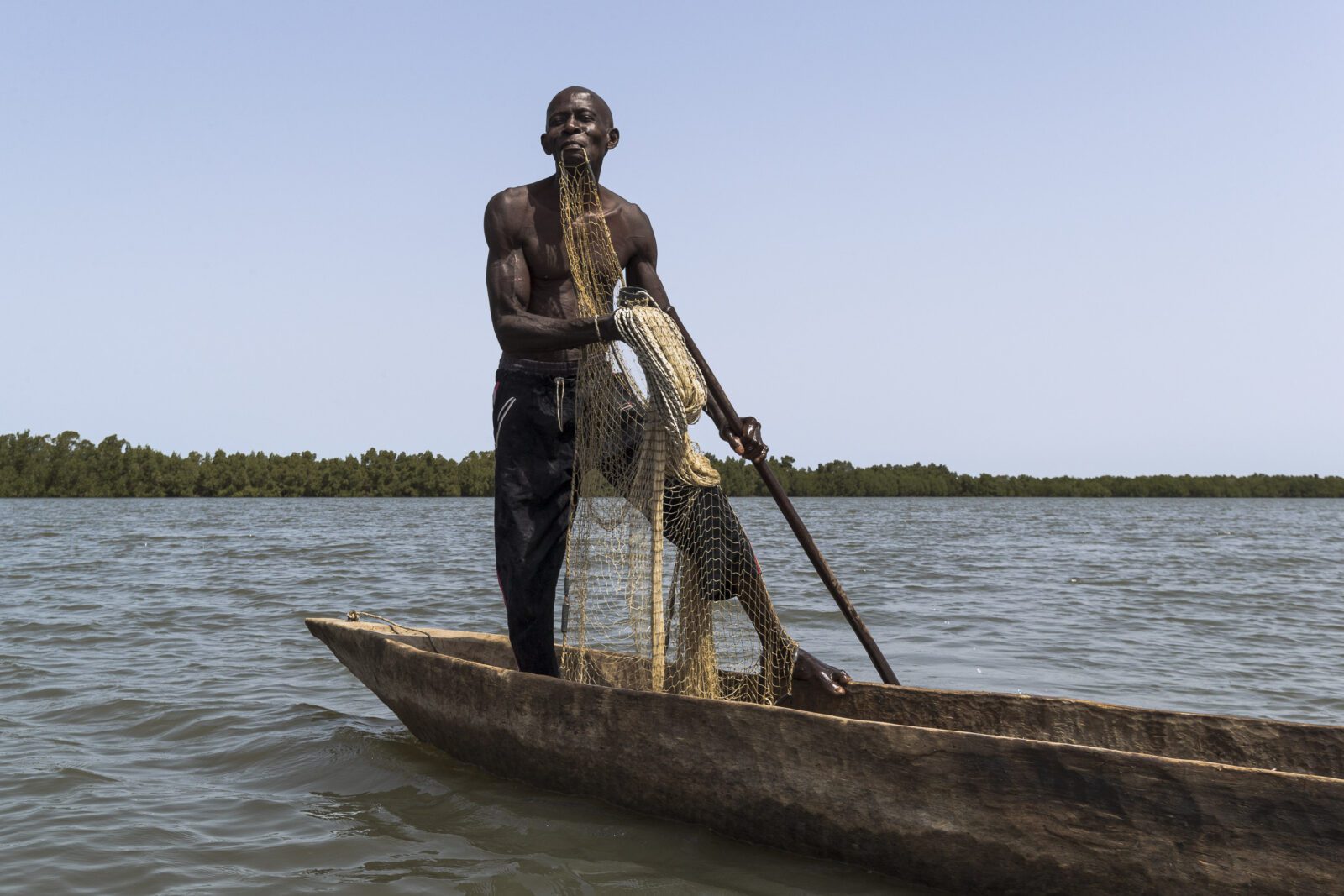
Empowering national partners capable of delivering results to coastal communities
One of our main strategic decisions in West Africa is to keep our own presence to a core technical team capable of supporting our local partners. West Africa has decades of experience in community-led marine conservation and fisheries management, and we feel that it is our role to support and empower existing actors who have the trust of local communities and deeply understand their needs.
In Senegal, we found an inspiring partner in Nebeday, which has been active for years in the Saloum Delta, supporting communities in the management of their mangrove ecosystems and the rich fisheries they create. They have lifted many communities out of poverty by improving the return they get for their catch–for example, by solar drying of oysters–and by providing eco-tourism income for coastal communities.
We opened a joint office with them in July 2023 in the town of Oussouye, located in the massive, 123,000-hectare, community-led Marine Protected Area of Ufoyaal Kassa-Bandia (UKB) where we will focus our initial activities. Nebeday’s new Casamance team has been visiting communities in the UKB MPA, setting up cinema debates and discussing their needs and the conservation actions they wish to take.
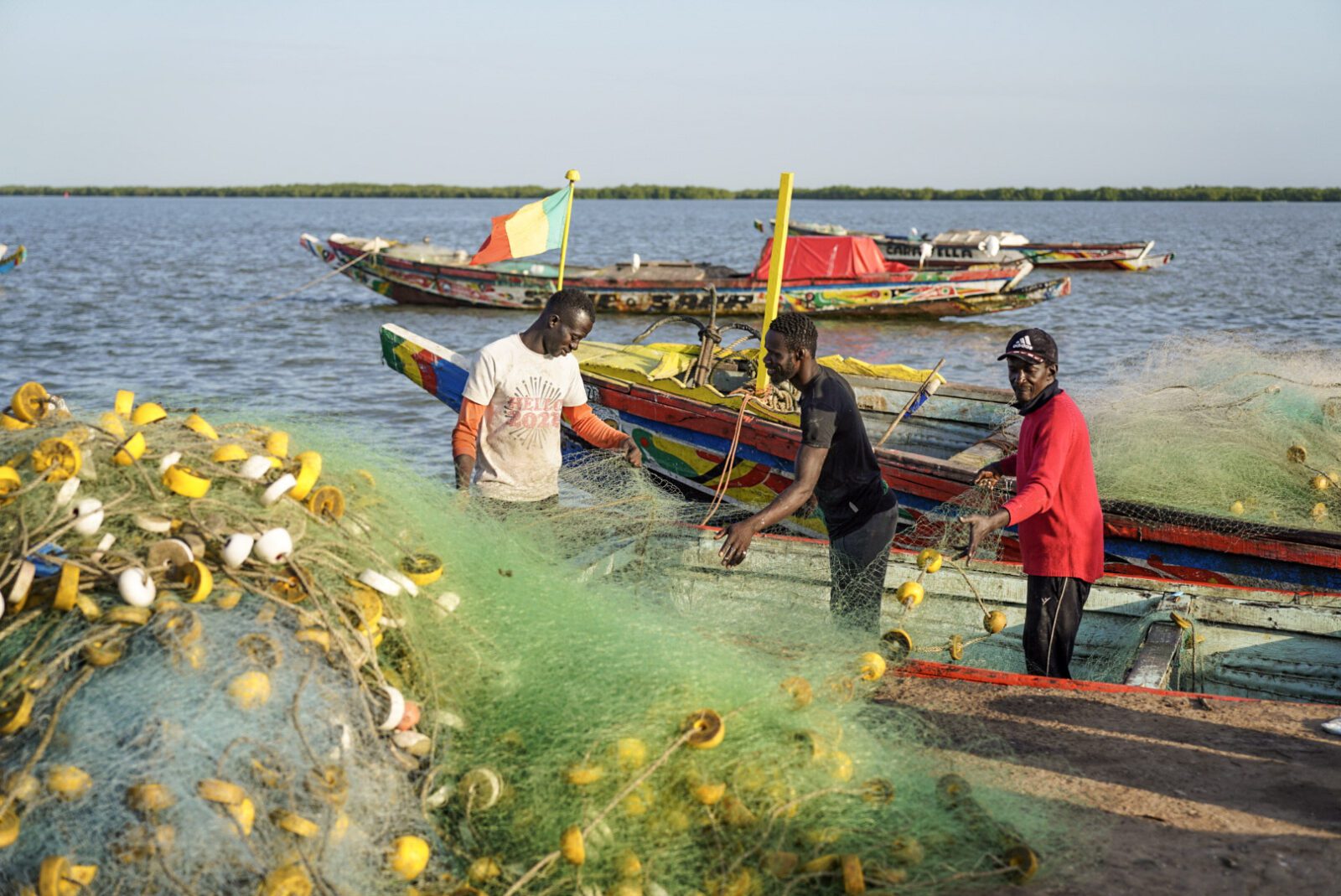
In Guinea-Bissau, we are building a similar partnership with Tineguina, which means “this land is ours” in the local language. Tineguina is the oldest organisation focused on community-led marine conservation in Guinea-Bissau and created the first community-led Marine Protected Area, UROK, on three islands of the Bijagos archipelago in 2005.
In June, we carried out an extensive exploration of the 200,000 hectares Rio Grande de Buba mangrove delta system in Guinea-Bissau, meeting with fishers and community leaders to better understand their needs and interest in community management of their rich fisheries. Even though the fishers had received almost no international NGO support since the last major project was abandoned during the civil war in 1999, we were impressed that the fishers associations that had been set up continued to function, and we are eager to re-engage in the management of the marine resources they depend on for their livelihoods.
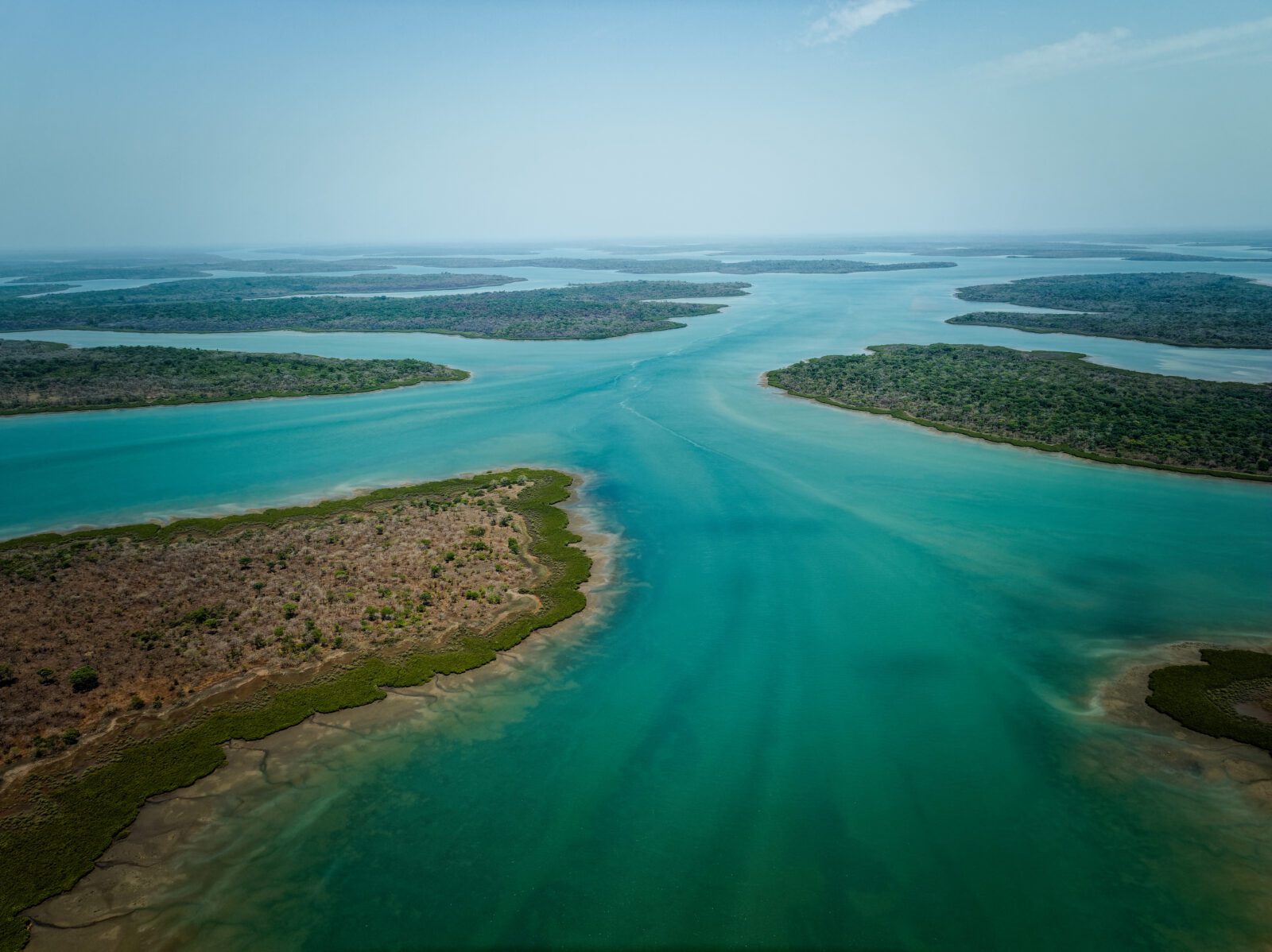
Learning from each other
We believe that fishers have deep knowledge of their ecosystems and of the ways to preserve and manage them. Rather than a traditional top-down learning approach, we believe that the best way for fishers to learn new knowledge is from each other.
In October, we organised a week-long learning exchange from Senegal and The Gambia to Madagascar, bringing our new civil society partners to Ambanja and Nosy Be to learn about our work with communities in Madagascar. We have been active in Madagascar for 20 years, and the participants in the exchange learned about our mangrove management work, fisheries management actions, patrolling of protected areas, and alternative livelihoods work.
Learning exchanges also took place at the more local level, giving communities access to knowledge they could obtain from neighbours not too far away. In late August, twelve members of Gambian youth and women’s groups visited the mangrove nurseries of a youth group in Senegal to learn techniques for mangrove nurseries and large-scale mangrove replanting.
Learning exchanges also visited our new West Africa project from farther away. In October, a 7-person team, including three representatives of RENATURA, came to Senegal from the Republic of Congo, eager to learn how Senegalese civil society and government co-manage MPAs. The Cameroonian NGO African Marine Mammals Conservation also made two learning visits to Senegal, the first to learn more about community-led marine conservation and the second to train Senegalese partners on tracking marine megafauna.
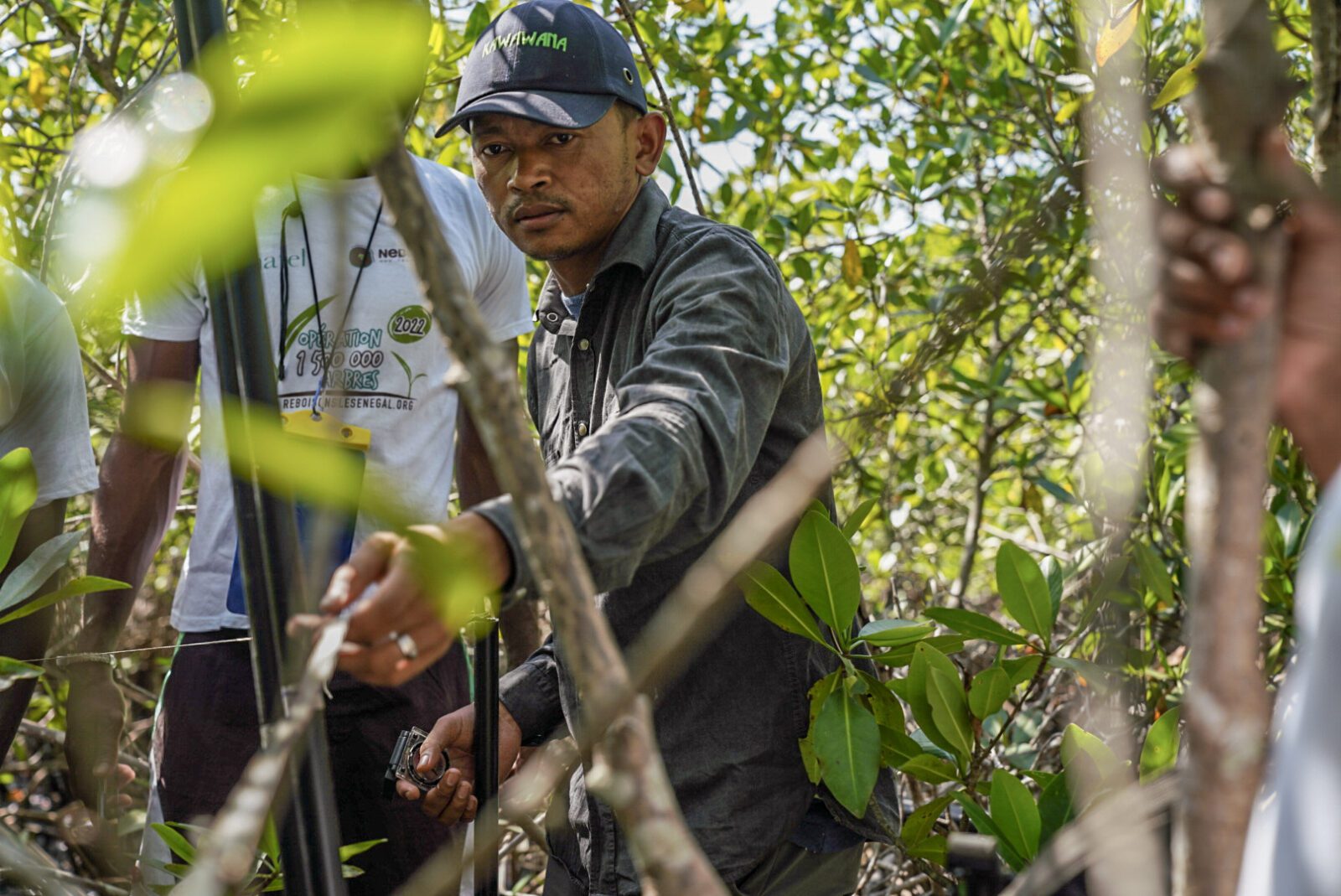
Mangroves, mangroves, mangroves
Mangroves are the dominant inshore marine ecosystem in much of West Africa, and they account for about 14% of the globe’s mangroves. West Africa’s major mangrove deltas often extend hundreds of kilometres inland and provide an extensive nursery system for fishes and shellfish on which many coastal communities depend for their food and livelihoods. Healthy mangroves mean healthy fisheries, so much of our efforts in West Africa are focused on protecting mangroves and restoring them where they were lost.
During 2023, we engaged with many partners on restoring mangroves: The Parc National du Delta de Saloum (20+ hectares), the Reserve Ornithologique de Kalissaye (20+ hectares), the Club de Changement Climatique Zinguinchor and the Kalolal Blouf Fogny MPA (10 hectares), and Eco-Rurale and the Ufoyaal Kassa-Bandia MPA (30+ hectares, plus the setting up of specialised salt-tolerant Avicennia mangrove nurseries).
Together with the UKB MPA management committee, we are developing a database that will allow us to monitor the replanting efforts of the many different organisations that are active in mangrove replanting from one common database, which will map the replanting efforts, follow-up monitoring using drones and satellite analysis, and funding sources and communities involved in the efforts.
Our science-based approach also includes mapping of the mangroves, so we can better identify where our restoration efforts should be focused. Following a week-long training for all stakeholders on scientific methods for mangrove management in December 2022, our Madagascar-based mangroves science team returned to the Kawawana LMMA in November 2023 to continue its efforts to map the 15,000 hectares under Kawawana’s management using our in-house GEMM technology, which is based on Google Earth Engine tools.
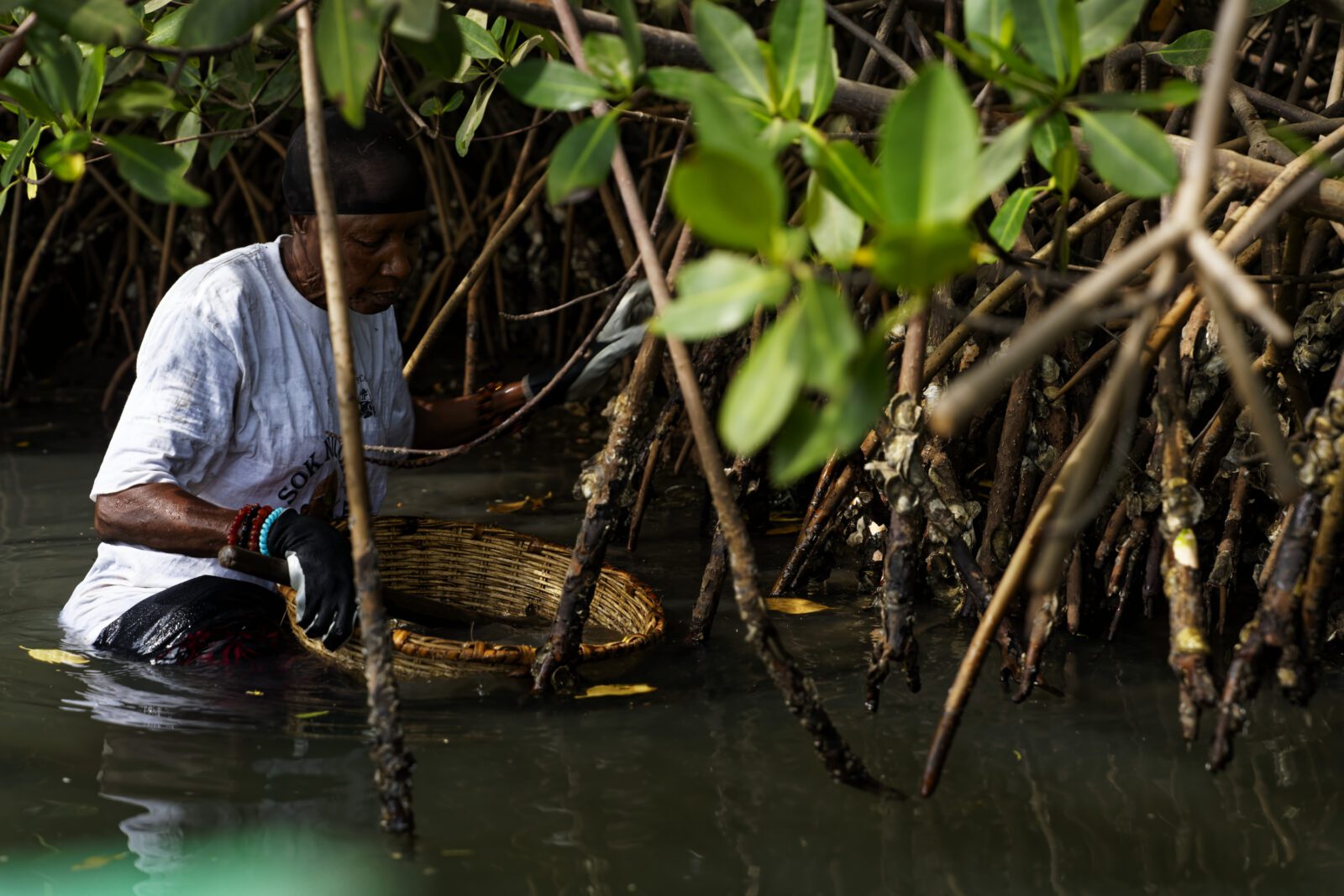
Advocating for the rights of artisanal fishers
A major part of our work in West Africa has been to advocate for the rights of artisanal and small-scale fishers, whose livelihoods and food security are threatened by industrial overfishing by distant-water-fleets from Asia and Europe.
In 2023, the Transform Bottom Trawling coalition joined the Environmental Justice Foundation to conduct an in-depth study into the impact of bottom-trawling on fisheries and ecosystems in Senegal. The final report rang the alarm bell on the extensive destruction bottom-trawling is causing in Senegal, and its detrimental impact on fish stocks in Senegalese waters. We held a series of workshops with fisheries officials, experts, and Parliamentarians to discuss our reports, and had an immediate impact: shortly after the release of the report, the Minister of Fisheries and the Blue Economy announced a moratorium on new licences.
The plummeting fish stocks and increasing competition between fishers for the remaining fish also has led to increasing conflicts between fishers, some violent. In early 2023, a dispute between fishers over the confiscation of outlawed drifting gillnets led to violent battles at sea that caused one death and many hospitalisations. In response to the violence, we worked with our advocacy partner ADEPA, PRCM, and the Ministry to organise a nation-wide workshop seeking to de-escalate the situation and set out a roadmap towards better enforcement of fisheries regulations.
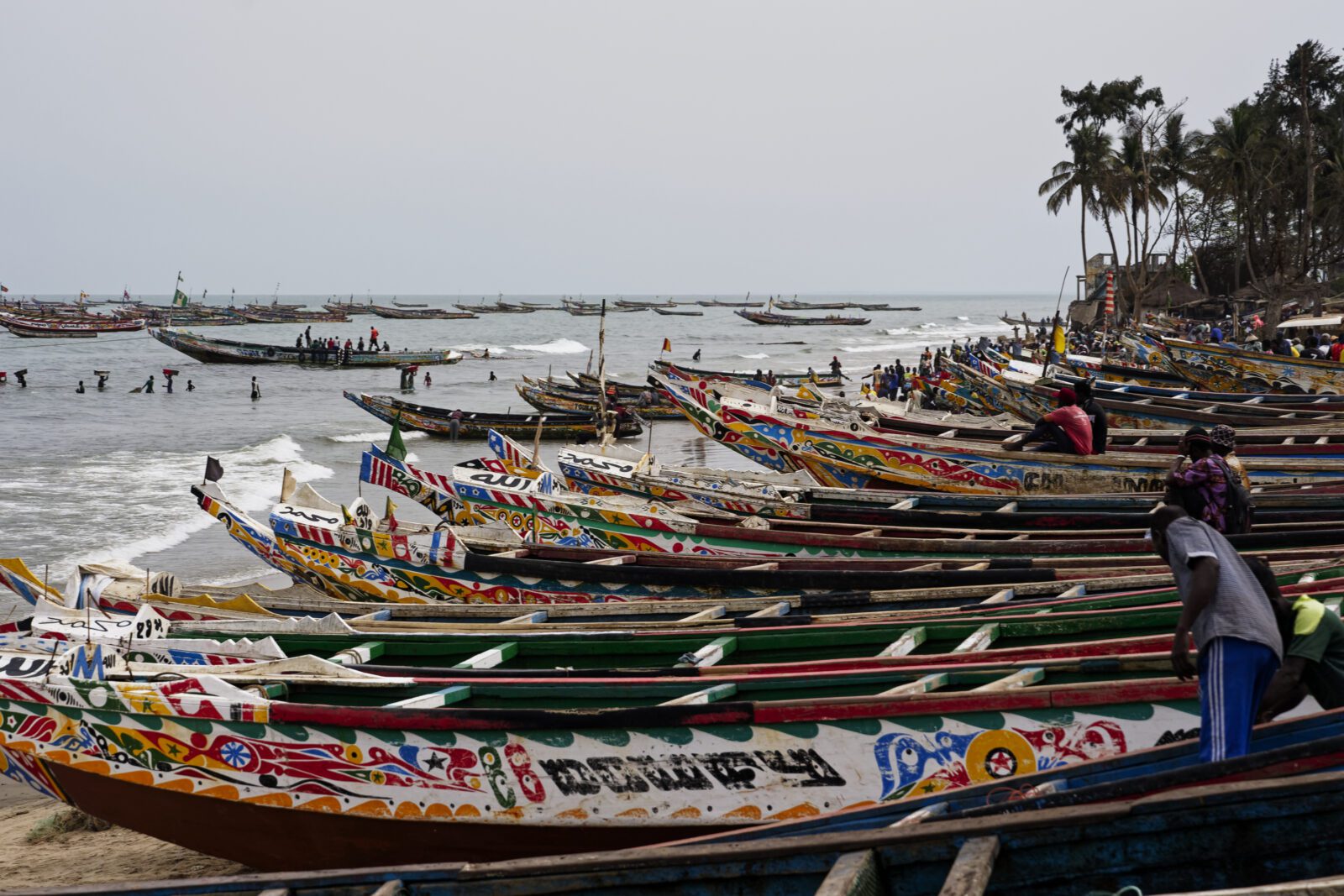
Onwards to 2024!
We aim to carry on in 2024 by deepening and strengthening the partnerships we have already developed and are expanding our activities with our partners to new geographies and communities. We have already identified some exciting partners in Cabo Verde with whom we will engage in digital catch data collection and fisheries management, and we plan to expand our advocacy work protecting artisanal fisheries from industrial overfishing to the entire West African region.

